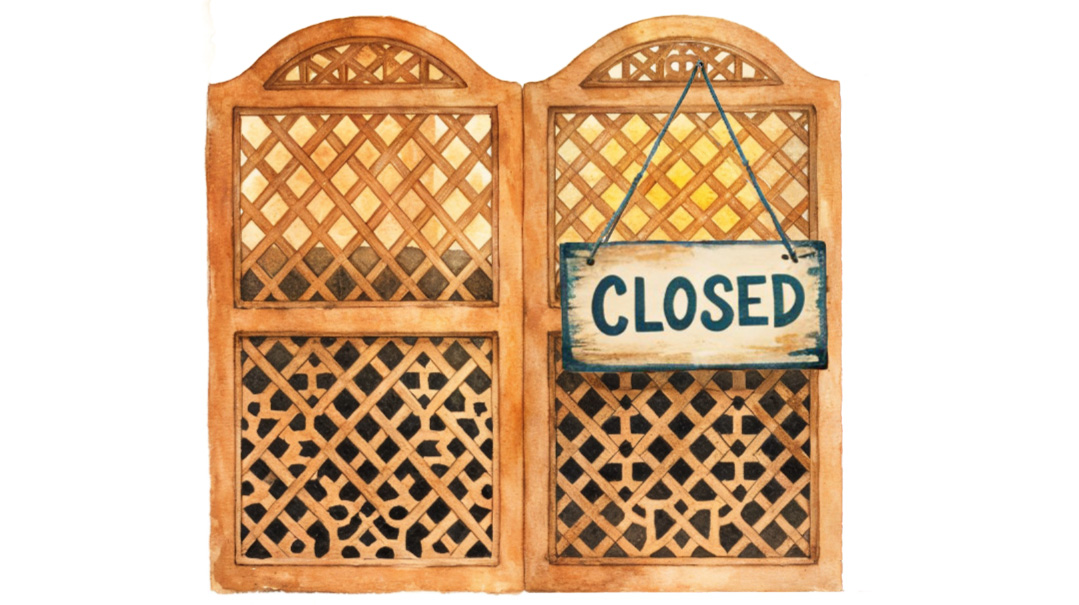Mourning in Monticello
| July 26, 2017
BRUSH OFF Our only hope: Rabbi Rosenberg the humble camp posek. Surely he would tell us we had a few minutes to play with! Surely he would find some obscure heter! (Pikuach social life? Post-halitosis-stress-disorder?) At the very least he could probably give us the green light to brush with some H2O
T he sun was setting the air was steamy and two panicky 14-year-olds embarked on an emergency mission: find Rabbi Rosenberg NOW.
It was Erev Tishah B’Av. We were two (mostly nice mostly good) Bais Yaakov girls seeking the answer to a critical question: Could we still brush our teeth?
Minutes earlier hundreds of campers and counselors had speckled the lawn in solitude a somber mottling of grounds that normally pulsed with song. It was like someone had pressed the mute button muzzling 300 girls to make space for something bigger heavier transcendental.
As the sun sloped in the sky we’d nibbled on slices of bread and egg sneaking wary glances at our cups of ashes (do we really have to eat this?). Molars grinded plastic bags crinkled and grim teenagers gently shushed their hyper charges reminding them of the nature of the day.
Now the odd display had dissipated replaced by a mass migration to shul. Except for two petite TCs who’d made the nightmare revelation: We hadn’t brushed our teeth!
We weren’t spoiled. We weren’t jappy. We weren’t even high-maintenance (okay maybe we were.) But the yuck factor of 24 hours without Colgate nor a morsel of food to temper the Voldemort-esque potency of bad breath was too much for us to contemplate.
Our only hope: Rabbi Rosenberg the humble camp posek. Surely he would tell us we had a few minutes to play with! Surely he would find some obscure heter! (Pikuach social life? Post-halitosis-stress-disorder?) At the very least he could probably give us the green light to brush with some H2O.
But where was he? We zigzagged across campus scampering from the main office to the dining room from the shul to the beis medrash. Finally his wife — looking mildly puzzled — directed us to the family bungalow.
Agitated glancing dramatically at our watches as only adolescents could we knocked on the door. “Come in ” a weak voice said.
We stepped over the threshold taking in a two-room 80-square-foot space built with the aesthetic sense of a nuclear physicist. Featuring muddy archaic windows stark-white paint and a lone fluorescent bulb dangling from the ceiling the place looked like a 1930s operating theater.
Total silence. It looked empty… until we spotted him. Behind a spartan wooden table nearly fading into the peeling walls sat a red-bearded man on the floor. His face was enshrouded in his palms; ashes dotted his fingers. We approached and he lifted his head in acknowledgment revealing red eyes and splotched cheeks.
He looked like someone had died.
What happened next is a blur. I don’t remember how we phrased our question or what Rabbi Rosenberg answered. I cannot recall if I brushed my teeth or if I spent all of Tishah B’Av that year cupping my hands over my mouth to spare my comrades the pain.
All I remember is that as Rabbi Rosenberg listened considered and offered a slow compassionate response I felt a torrent of shame rush over me one wave after the next steady unrelenting crushing.
It was a shame so great that I redden each time I think of it. (Excerpted from Family First Issue 552)
Oops! We could not locate your form.







